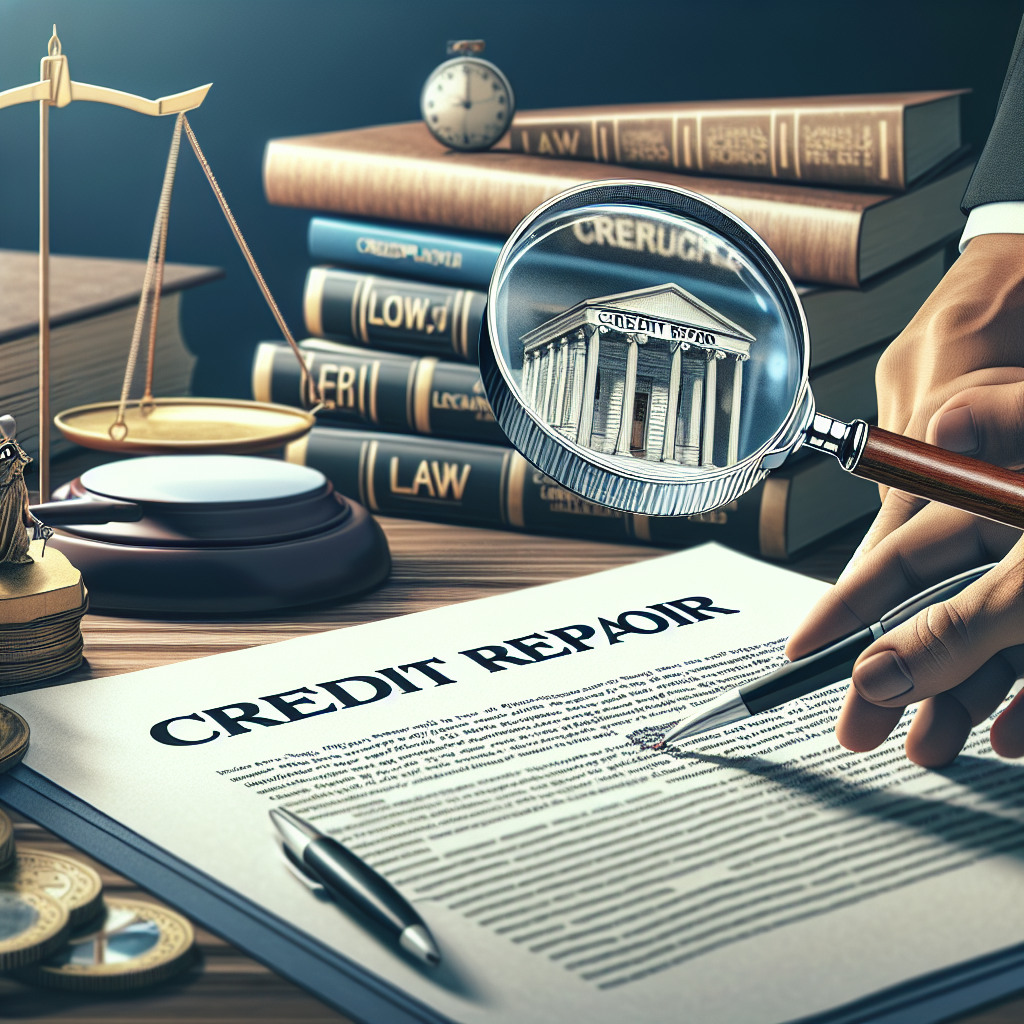In today’s economy, maintaining a good credit score is more important than ever. Whether you’re applying for a mortgage, car loan, or even renting an apartment, creditors rely heavily on your credit history. However, many individuals find themselves struggling with poor credit due to various circumstances. Understanding the legal aspects of credit repair can empower you to make informed decisions about your financial future.
What is Credit Repair?
Credit repair is a process aimed at improving a person’s creditworthiness by removing inaccuracies or negative items from their credit report. While it can be done independently, many people choose to hire professional credit repair services to assist with the process. It’s essential to recognize that credit repair is a legal practice regulated under the Fair Credit Reporting Act (FCRA) and other consumer protection laws.
Your Rights Under the Fair Credit Reporting Act (FCRA)
The Fair Credit Reporting Act (FCRA) is a federal law that governs how credit bureaus and certain entities handle consumer information. Here are essential rights you hold under the FCRA:
1. Right to Obtain Your Credit Report
Under the FCRA, consumers have the right to request a free copy of their credit report from each of the three major credit bureaus—Experian, Equifax, and TransUnion—once a year. This empowers you to review your credit history for inaccuracies.
2. Right to Dispute Errors
If you discover inaccuracies in your credit report, you have the right to dispute these errors. The credit bureau must investigate your claim, typically within 30 days, and correct any inaccuracies that are confirmed.
3. Right to Know Who Accessed Your Credit
You have the right to know who has viewed your credit report. This can help you identify any unauthorized access or potential identity theft issues.
4. Right to Limit Information Sharing
You can restrict the sharing of your credit information under certain circumstances. For example, you can opt-out of pre-approved credit offers, which can reduce the chances of identity theft.
Understanding Credit Repair Services
Many companies offer credit repair services, but it’s crucial to understand your rights before engaging with one. Here are some key legal considerations:
1. Credit Repair Organizations Act (CROA)
The Credit Repair Organizations Act (CROA) outlines specific regulations that credit repair companies must follow. They must provide clear and accurate information about their services and cannot make false claims regarding removing negative items. Before hiring a credit repair company, ensure they provide a written contract detailing their services and fees.
2. No Guaranteed Results
Be wary of companies that promise to improve your credit score or remove negative items from your report. While they can assist in disputing inaccuracies, no one can guarantee results. Any legitimate credit repair organization complies with this legal guideline.
3. Avoiding Scams
Unfortunately, the credit repair industry has its share of scams. If a company asks for payment upfront or promises unrealistic results, it may not be legitimate. Always research any credit repair service and read reviews before engaging.
DIY Credit Repair: Know Your Rights
If you decide to take the DIY route, it’s essential to know your rights. You can dispute errors with credit bureaus directly and write letters to creditors explaining your situation. The FCRA grants you the ability to communicate openly about your credit history.
1. Keeping Records
Document every communication you have regarding credit disputes. Keep copies of all letters and responses, as this information is vital if disputes escalate.
2. Time Limits for Reporting
Be aware of the time limits for negative information reporting. Most negative items, such as late payments, can remain on your credit report for up to seven years. However, bankruptcies can remain for up to ten years. Understanding these timelines can help you strategize your credit repair efforts.
Conclusion: Empower Yourself with Knowledge
Understanding the legal aspects of credit repair is crucial for individuals seeking to improve their financial standing. By being aware of your rights and the regulations governing credit repair, you can make informed decisions that protect your interests. Whether opting for professional services or navigating the process independently, knowledge is your most powerful tool in credit repair. Empower yourself today, and take the first step toward improving your credit score.
Call to Action
If you’re ready to start your credit repair journey, consider obtaining your free credit report today and reviewing it for any discrepancies. Don’t hesitate to reach out to a reputable credit repair agency if you need assistance. Remember, your financial future is in your hands!

